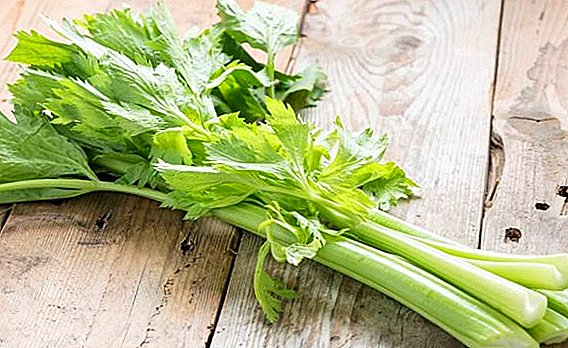 When breeding chickens, their owners often face various avian diseases. Since it is impossible to trace everything that birds eat, especially with free-range, one of the most common diseases is diarrhea in laying hens. We offer information on how to treat it.
When breeding chickens, their owners often face various avian diseases. Since it is impossible to trace everything that birds eat, especially with free-range, one of the most common diseases is diarrhea in laying hens. We offer information on how to treat it.
Follow the litter
The consistency, color and frequency of feces - all this is of great importance. If you want to grow a healthy bird, this issue must be constantly kept under control, in any case not letting it drift.
Intestinal
Day stools are called intestinal droppings. In healthy chicken, they should be dark or light brown in color, and in their form resemble pellets. White patches are considered normal and indicate that uric acid is excreted in the urine, and also exits in the feces. If the bird's stool does not meet these characteristics, it is necessary to continue monitoring and establish a diagnosis.
Cecal
Night litter is called cecal, and its normal consistency is much thinner than that of intestinal, and its color should be dark brown. Such litter is the result of daily deposits in the blind processes of the small intestine. If the digestive system malfunctions, food debris can ferment in the blind processes, which leads to disease. And you have to think about how to treat diarrhea in laying hens.
Important! Chicken feces should not contain mucus, gas bubbles and bloody patches - All this suggests that the bird is unhealthy.
Symptoms and first signs
Signs and symptoms are divided into direct and indirect. To direct include the following:
- loose stools on pallets and bedding in the house, as well as the presence in it of various inclusions, such as undigested pieces of food, mucus, blood, gas bubbles;
- if the plumage around the bird's cloaca is soiled in the feces, it should also be observed;
- sticky and liquid feces in calves - this can cause cloacal blockage and subsequent death of the chicken;
- the presence of disturbances in the digestive system of the hen can be determined by the appearance of eggs, which in a healthy bird must be clean. If there are contaminants in the eggs in the form of dark droppings and blood leaks, this is a signal to sound the alarm.

Causes of
No disease can arise and develop just like that, there is always a cause of the problem. The sooner you determine it and establish a diagnosis, the better.
Important! White diarrhea in chickens is most often a symptom of serious infectious diseases. When it appears follows immediately get down for examination, diagnosis and treatment, as the growing body is too vulnerable and unable to independently fight the disease.
Infections
Diarrhea can be a symptom some infectious diseases for example pullorosis. This ailment is also called "white bacterial diarrhea". When symptoms appear in chickens, treatment should begin immediately.
In adult birds, the disease is almost asymptomatic, but chickens aged 1-3 weeks can suffer greatly. Infection can occur from temperature changes (extreme heat or cold), as well as spread from an infected individual.  Chickens observed depressed, drowsiness, loss of appetite; it seems that the birds are breathing heavily, all the time they open their beak and close their eyes. After a few days, liquid dark stools are added to these symptoms, which can clog the cloaca of the chicken and thus cause its death.
Chickens observed depressed, drowsiness, loss of appetite; it seems that the birds are breathing heavily, all the time they open their beak and close their eyes. After a few days, liquid dark stools are added to these symptoms, which can clog the cloaca of the chicken and thus cause its death.
Also, diarrhea can be one of the symptoms of the following infections: Gumboro disease, salmonellosis, pasteurellosis, clostridiosis, Newcastle disease. At the slightest sign that the birds have caught the infection, you should seek help from a veterinarian. Only a qualified specialist can make an accurate diagnosis and correctly prescribe therapy.
Important! The cause of the liquid stool in birds can be hypothermia or cold.
Microflora disruption
Violations of the intestinal microflora may occur due to the use of food with mold or rot. This leads to the development of pathogenic Escherichia coli, clostridia and coccidia. After consultation with the veterinarian, intensive therapy is prescribed to normalize the microflora.
Wrong diet
Improper feeding of layers can also cause stomach upset. Most often this applies to low-quality food that feeds on poultry.
Food poisoning can be caused by: stale food, which, for example, has remained in the manger since yesterday, expired products affected by mold or fungus, as well as food with a high content of proteins, fats and fiber.
Diarrhea can begin due to switching to another feed. If the chicken regularly fed on mash or mixed fodder, and then granular feed suddenly appeared in its feeder, it could cause stress, and as a result, the stool would become thin.
Too much greenery consumed by the bird can also cause stomach upset.
Important! The cause of food poisoning may be stagnant or dirty water. If automatic drinking bowls are not installed in the house, regularly clean and fill the containers with water manually.

Long transport
Almost all more or less stressful situations chickens react with the appearance of diarrhea - whether it be a fall from the roost or a long distance crossing. There is even such a term as “transport diarrhea”, its cause is the concern of the bird. When the layer calms down, everything is normalized by itself.
Different breeds of chickens require different housing conditions, so it is important to know how to breed chickens from the Kuban Red, Amrox, Maran, Dominant, Wyandot, Sussex, Faverol, Rhode Island.
How to treat diarrhea in laying hens
In no case can not immediately begin to medical treatment, all actions must be performed in stages and weighed. Hasty steps can lead to a worsening of the situation or even the death of birds.
What to do first
When chicken diarrhea is clearly observed, the cause is first determined and the diagnosis established. Only then it becomes clear how to treat it.
Naturally, the first thing you need to remove the irritant - the cause of the disorder. If the fault is wrong or unbalanced nutrition, it should be changed. First of all, it is necessary to remove expired and / or low-quality products from the diet and observe the dynamics.  Diarrhea on the background of stress passes without any special therapy, it is enough to create comfortable conditions for the hens. Even if only one bird fell ill, it is necessary to clean and disinfect the hen house and isolate all sick individuals. When all these measures are taken, careful observation is required.
Diarrhea on the background of stress passes without any special therapy, it is enough to create comfortable conditions for the hens. Even if only one bird fell ill, it is necessary to clean and disinfect the hen house and isolate all sick individuals. When all these measures are taken, careful observation is required.
If chickens do not get better, diarrhea does not pass, and, moreover, new symptoms of the disease appear, it is necessary to move on to medical treatment.
Did you know? Layers most often bring eggs of different sizes. In order for them to be equally large, the bird must be healthy, have a varied diet and comfortable living conditions.
Medication use
If chickens diarrhea even after a change in diet, let's see what is the best to treat them.
Helpless may come harmless children's drug "Biseptol"which comes in pill form; they are crushed and added to the feed, with 8 parts of feed being taken for 1 part of the medicine. Chicks dosage reduced by half. Therapy is carried out for 5-7 days. Another safe drug for laying hens - "Levomitsetin"; 4-5 tablets are dissolved in water and poured into a drinker. The result will not keep you waiting long - in a couple of days all the symptoms will disappear without a trace.
Another safe drug for laying hens - "Levomitsetin"; 4-5 tablets are dissolved in water and poured into a drinker. The result will not keep you waiting long - in a couple of days all the symptoms will disappear without a trace.
For the treatment of small individuals used probioticsthat help restore a healthy intestinal microflora and improve the condition of chickens. Fermented milk products such as yogurt and whey, as well as special preparations purchased from a veterinary pharmacy can serve as such a useful product.
In severe and advanced cases, antibiotics are used, but only a veterinarian can prescribe such strong medicines.
After successful treatment, it is recommended to add vitamins to the hen’s diet. These can be vitamin complexes dissolved in water or mixed with food. Such rehabilitation is recommended to be carried out within 7-14 days. After the chickens become vigorous and cheerful again, and they have an appetite, they stop it.
Did you know? Chickens are not as stupid as we mistakenly believe. It turns out that the daily chicken can be compared in terms of development with a three-year-old child. - the skills that they acquire at this age are almost identical.

Folk remedies
In addition to the classical methods of treatment, there is a mass of popular, time-tested funds. Of course, it is better to use them in those situations when the disease is not started and its cause is reliably known, that is, in its milder forms. All such methods are based on the use of various infusions and decoctions.
Effective means are considered clay water and decoction oats - their astringent ingredients can stop diarrhea. Experienced poultry farmers also note positive results after adding wine to the drink, which also has astringent qualities.
The permissible amount of dry red wine for an adult individual is 5-10 drops, and for a chicken - no more than 2 droplets. Alcoholic drink birds give twice a day. You can try to water the birds with a decoction of chamomile.
A weak solution of potassium permanganate can also help in this situation; the main thing is that the concentration of the substance should not be too high, the drink in finished form should have a light pinkish hue. This therapy gives the result after a couple of days.
Diarrhea is very common in birds, so you need to be prepared for this and not panic when it occurs. It is important to remember that a timely clarified cause of the disease will help save the livestock of the chicken coop from death. Therefore, experts recommend to carefully monitor the diet of birds and on time to take preventive measures.












